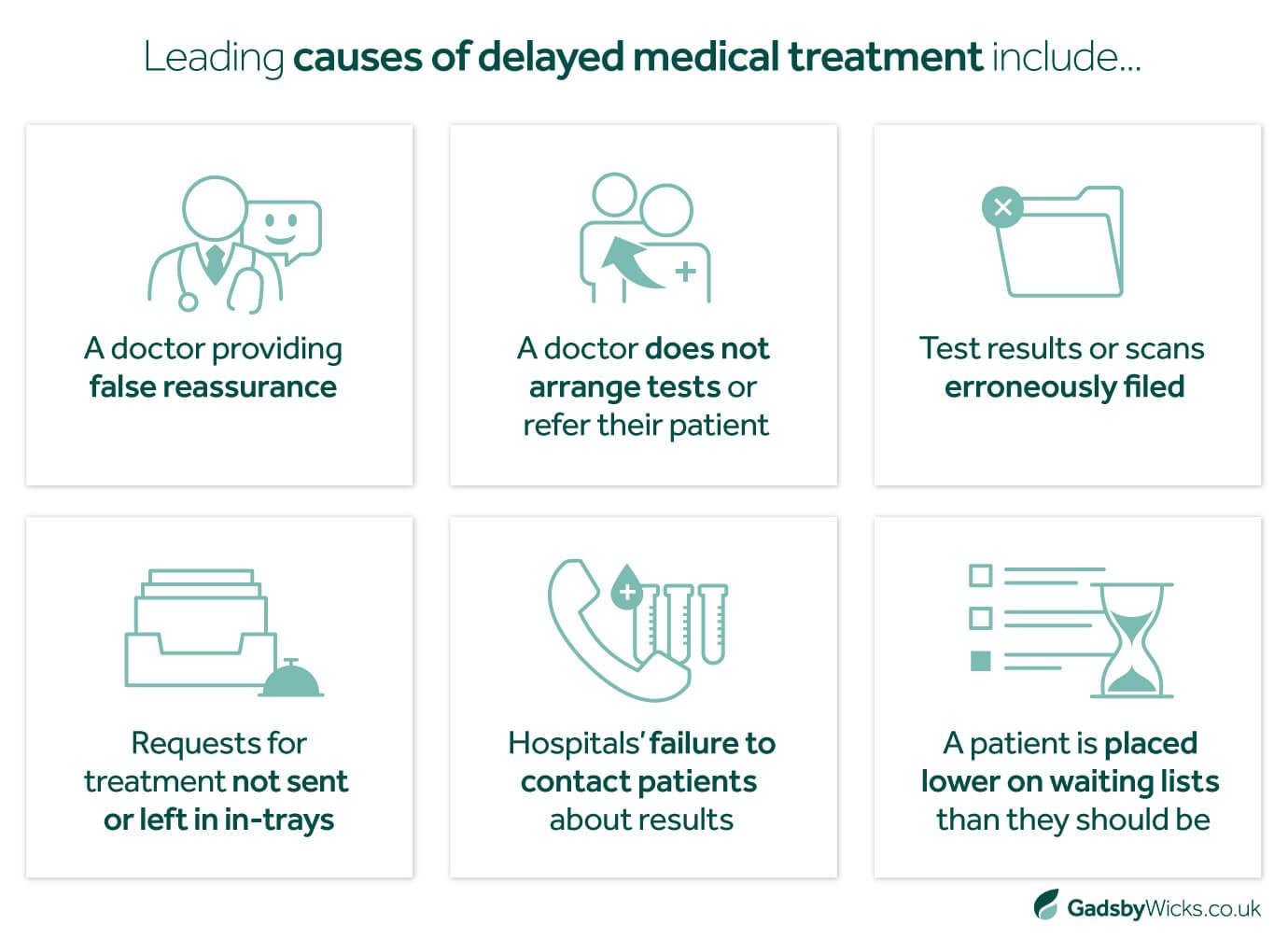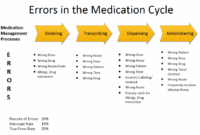How Much Compensation Can You Claim for Medical Delays? This critical question haunts countless individuals facing the devastating consequences of delayed medical care. Imagine the frustration, the pain, the financial strain—all stemming from a system that failed to act swiftly. This isn’t just about numbers; it’s about lives altered, opportunities lost, and the fight for justice. We’ll dissect the complexities of medical delay compensation, exploring the factors that determine how much you might receive and guiding you through the legal maze.
From understanding what constitutes a “medical delay”—encompassing diagnostic, treatment, and surgical setbacks—to navigating the legal intricacies of claiming damages, we’ll cover everything. We’ll examine various types of compensable damages, including financial losses like lost wages and medical bills, and non-financial losses such as pain and suffering. Crucially, we’ll delve into how jurisdictional laws, injury severity, and pre-existing conditions impact the final compensation amount. Real-world case studies will illustrate the nuances of the process, highlighting the evidence needed to build a strong claim.
Defining Medical Delays
Medical delays encompass a range of scenarios where a patient experiences harm due to unacceptable latencies in diagnosis, treatment, or surgical intervention. These delays can stem from various factors, significantly impacting patient outcomes and potentially leading to compensable damages. Understanding the nuances of medical delays is crucial for both patients and medical professionals.
Comprehensive Definition of Medical Delays
Medical delays are defined as any unreasonable or negligent postponement in providing appropriate medical care, leading to a worsening of the patient’s condition or additional harm. This includes diagnostic delays (failure to accurately diagnose a condition in a timely manner), treatment delays (unjustified postponements in initiating necessary treatment), and surgical delays (unnecessary delays in performing required surgeries). These delays can have severe consequences, ranging from increased pain and suffering to permanent disability or even death.
Factors Contributing to Medical Delays
Several factors can contribute to medical delays, often intertwining to create complex situations. These include administrative issues such as inefficient record-keeping or communication breakdowns, staffing shortages leading to overworked and overwhelmed medical professionals, and equipment malfunctions that hinder the timely delivery of care. Poor communication between medical professionals, inadequate training, and systemic issues within healthcare facilities can also play significant roles.
Types of Medical Negligence Leading to Compensable Delays
Medical negligence resulting in compensable delays often involves a breach of the duty of care owed to the patient. This breach can manifest in various forms, including misdiagnosis, failure to follow established medical protocols, inadequate monitoring of a patient’s condition, and insufficient communication with the patient or their family. Each instance needs thorough investigation to determine if negligence caused the delay and subsequent harm.
Determining how much compensation you can claim for medical delays hinges on several factors, including the severity of the delay’s impact on your health. A significant contributing factor could be medication errors, and understanding how to navigate such situations is crucial. For expert guidance on this, check out this comprehensive guide on How to Handle a Medication Error Case which can help strengthen your claim for medical negligence compensation.
Ultimately, documenting the extent of harm caused by the delay is key to a successful compensation claim.
Types of Compensable Damages
When medical delays result from negligence, patients may be entitled to compensation for various damages. These damages can be categorized into direct financial losses and non-financial losses, reflecting the multifaceted impact of medical negligence.
Direct Financial Losses, How Much Compensation Can You Claim for Medical Delays
Direct financial losses resulting from medical delays are easily quantifiable and include expenses directly related to the delayed care. This encompasses lost wages due to inability to work, increased medical expenses due to the worsening condition, and costs associated with rehabilitation or long-term care necessitated by the delay.
Determining how much compensation you can claim for medical delays hinges on several factors, including the severity of the resulting harm. This is especially crucial when considering situations where incorrect prescriptions cause serious injuries; understanding your rights in such cases is paramount. Learn more about your options by checking out this critical resource on Your Rights When Wrong Prescriptions Lead to Serious Injuries , then return to calculating your potential compensation for the initial medical delays.
Non-Financial Losses
Non-financial losses are more subjective but equally significant, representing the intangible impact of medical delays on a patient’s life. These include pain and suffering, emotional distress stemming from the anxiety and fear associated with the delay, and loss of enjoyment of life due to limitations imposed by the worsened condition. Assessing these losses requires careful consideration of the patient’s individual circumstances.
Determining how much compensation you can claim for medical delays hinges on several factors, including the severity of the delay’s impact on your health. A significant contributing factor to these delays can be prescription errors, and understanding how to navigate this is crucial. For detailed information on common prescription errors and how to pursue compensation, check out this comprehensive guide: Common Prescription Errors and How to Claim Compensation.
Ultimately, the amount you can claim for medical delays will depend on the specific circumstances and the evidence you can provide, so thorough documentation is key.
| Damage Type | Description | Example | Calculation Method |
|---|---|---|---|
| Lost Wages | Income lost due to inability to work because of the delayed treatment. | A construction worker unable to work for 6 months due to a delayed diagnosis of a back injury, losing $5,000 per month. | Lost wages per period x number of periods |
| Medical Expenses | Increased medical bills due to the worsened condition resulting from the delay. | Additional surgery and therapy costs of $20,000 due to a delayed diagnosis of a broken bone. | Total additional medical expenses incurred |
| Pain and Suffering | Physical and emotional distress caused by the delay. | Chronic pain and anxiety due to a delayed cancer diagnosis, requiring ongoing medication and therapy. | Based on the severity and duration of pain and suffering, often determined by expert testimony. |
| Loss of Enjoyment of Life | Inability to participate in activities enjoyed before the delay. | A musician unable to play their instrument due to nerve damage caused by a delayed diagnosis of carpal tunnel syndrome. | Based on the limitations imposed and the impact on quality of life. |
Legal Principles Determining Compensability
The compensability of damages in medical delay cases hinges on proving negligence. This involves demonstrating a duty of care owed to the patient, a breach of that duty resulting in a delay, causation (a direct link between the delay and the harm suffered), and damages (quantifiable losses incurred). Legal precedent and expert medical testimony play critical roles in establishing these elements.
Factors Affecting Compensation Amounts
Several factors influence the final compensation amount awarded in medical delay cases, reflecting the complexities of assessing damages and applying legal principles.
Jurisdictional Variations in Laws
Compensation amounts vary significantly across jurisdictions due to differences in legal frameworks, caps on damages, and the interpretation of negligence. Some jurisdictions may have stricter standards for proving negligence, while others may offer higher compensation for similar injuries. Understanding the specific laws of the relevant jurisdiction is crucial.
Severity of Injury or Illness
The severity of the injury or illness directly caused by the delay significantly impacts the compensation amount. More severe injuries, resulting in permanent disabilities or long-term health problems, typically warrant higher compensation to reflect the extent of the harm.
Pre-existing Conditions and Their Contribution
Pre-existing conditions can complicate medical delay cases. If a pre-existing condition contributed to the outcome, it may reduce the compensation amount awarded. However, the focus remains on whether the delay exacerbated the pre-existing condition or caused new harm.
The Legal Process of Claiming Compensation
Filing a medical negligence claim for compensation due to delays involves a structured process, requiring careful documentation and legal expertise.
Steps in Filing a Medical Negligence Claim
The process typically begins with an initial consultation with a medical negligence lawyer, followed by investigation, gathering evidence (medical records, expert testimony, witness statements), filing the claim, negotiation with the defendant’s insurance company, and potentially litigation if a settlement cannot be reached. Each step requires meticulous attention to detail and adherence to legal procedures.
Determining how much compensation you can claim for medical delays hinges on several factors, including the severity of the delay’s impact on your health. A significant contributing factor to these delays can be prescription errors, and understanding your rights is crucial. If you’ve suffered complications due to a prescription error, learn more by checking out this comprehensive guide: What to Do When Prescription Errors Cause Complications.
This knowledge can significantly strengthen your case when seeking compensation for medical delays resulting from such errors. Proper documentation is key to maximizing your claim.
Required Evidence

Strong evidence is critical to a successful claim. This includes comprehensive medical records detailing the diagnosis, treatment, and the delay, expert medical testimony explaining the standard of care and how the delay breached that standard, and witness statements corroborating the patient’s account of events.
Flowchart Illustrating the Legal Process

A flowchart visualizing the legal process would show the sequential steps: Initial Consultation → Investigation & Evidence Gathering → Claim Filing → Negotiation → Litigation (if necessary) → Settlement or Court Ruling. Each stage would have potential outcomes indicated, such as rejection of the claim, settlement offer, or court judgment.
Illustrative Cases and Examples
Three hypothetical cases illustrate how different factors influence compensation in medical delay cases. Each case presents varying levels of severity, types of delays, and ultimate outcomes.
Case 1: Delayed Cancer Diagnosis
A 50-year-old woman experiences persistent abdominal pain, but her doctor dismisses it for months. A delayed diagnosis of ovarian cancer leads to advanced-stage disease and significantly reduced survival chances. She requires extensive chemotherapy and surgery, incurring substantial medical expenses and experiencing significant pain and suffering. Hypothetical compensation: $500,000.
- Key Evidence: Medical records showing the delayed diagnosis, expert testimony confirming the negligence, and evidence of the woman’s pain and suffering.
- Arguments: Plaintiff argues negligence caused a delay resulting in advanced-stage cancer. Defendant argues pre-existing genetic predisposition contributed to the cancer’s development.
Case 2: Delayed Fracture Treatment

A 25-year-old athlete suffers a broken leg during a game. Due to a misdiagnosis and delay in treatment, the fracture heals improperly, resulting in chronic pain and limited mobility. The athlete loses income due to inability to compete professionally. Hypothetical compensation: $150,000.
- Key Evidence: Medical imaging showing the fracture, expert testimony confirming the misdiagnosis and delayed treatment, and documentation of lost income.
- Arguments: Plaintiff argues negligence led to improper healing and loss of income. Defendant argues the athlete’s pre-existing condition may have contributed to the outcome.
Case 3: Delayed Appendicitis Treatment
A 10-year-old child experiences abdominal pain, but the parents delay seeking medical attention. The child develops appendicitis, requiring emergency surgery. The delay results in a ruptured appendix and complications requiring additional surgery and hospitalization. Hypothetical compensation: $75,000.
- Key Evidence: Medical records documenting the delay, expert testimony explaining the consequences of delayed treatment, and evidence of the child’s pain and suffering.
- Arguments: Plaintiff argues the delay led to the ruptured appendix and complications. Defendant argues parental negligence contributed significantly to the outcome.
Resources and Further Information
Seeking compensation for medical delays requires careful planning and legal expertise. Numerous resources can provide support and information.
Relevant Organizations and Websites
Patients can find valuable information and support from organizations dedicated to patient advocacy, medical malpractice information, and legal assistance. Many bar associations and consumer protection agencies offer resources on medical negligence claims.
Determining how much compensation you can claim for medical delays hinges on various factors, including the severity of the harm caused. This is especially crucial in cases involving negligence, such as those detailed in this insightful resource on Legal Support for Overdose Cases Due to Negligence , where delayed or inadequate medical care can have devastating consequences. Understanding the legal ramifications of such delays is key to securing fair compensation for your losses.
Common Legal Terms
Understanding legal terminology is crucial. A glossary of terms commonly used in medical negligence cases related to delays would include definitions of terms like “negligence,” “duty of care,” “causation,” “damages,” “standard of care,” “proximate cause,” and “malpractice.”
Importance of Legal Counsel
Seeking legal counsel is essential. A medical negligence lawyer can guide patients through the complex legal process, ensuring their rights are protected and maximizing their chances of obtaining fair compensation. The lawyer’s expertise in medical law and litigation is invaluable.
Successfully navigating the complex landscape of medical delay compensation requires a clear understanding of your rights and a strategic approach. While the process can be daunting, understanding the factors that influence compensation amounts—from the severity of the injury to the strength of your legal representation—is crucial for a successful outcome. Remember, seeking legal counsel is paramount. Don’t let bureaucratic hurdles or complex legal jargon intimidate you. Empower yourself with knowledge, build a strong case, and fight for the compensation you deserve. Your health, your future, and your peace of mind depend on it.
Helpful Answers: How Much Compensation Can You Claim For Medical Delays
What constitutes sufficient evidence in a medical delay claim?
Strong evidence includes detailed medical records showing the delay, expert testimony establishing causation between the delay and the harm suffered, and witness statements corroborating the timeline of events.
What if I have pre-existing conditions? Will this affect my claim?
Pre-existing conditions can impact your claim, but not necessarily negate it. The court will assess the extent to which the delay aggravated or worsened your pre-existing condition, rather than solely attributing the harm to those conditions.
How long does the legal process typically take?
The duration varies significantly depending on the complexity of the case, the jurisdiction, and the willingness of parties to settle. It can range from several months to several years.
Can I claim compensation for emotional distress caused by medical delays?
Yes, many jurisdictions allow compensation for emotional distress, such as anxiety, depression, or PTSD, resulting from medical delays. However, you’ll need to provide evidence to substantiate the claim.
What are the common reasons for medical delays?
Common reasons include administrative errors, staffing shortages, equipment malfunctions, misdiagnosis, and lack of communication between medical professionals.


